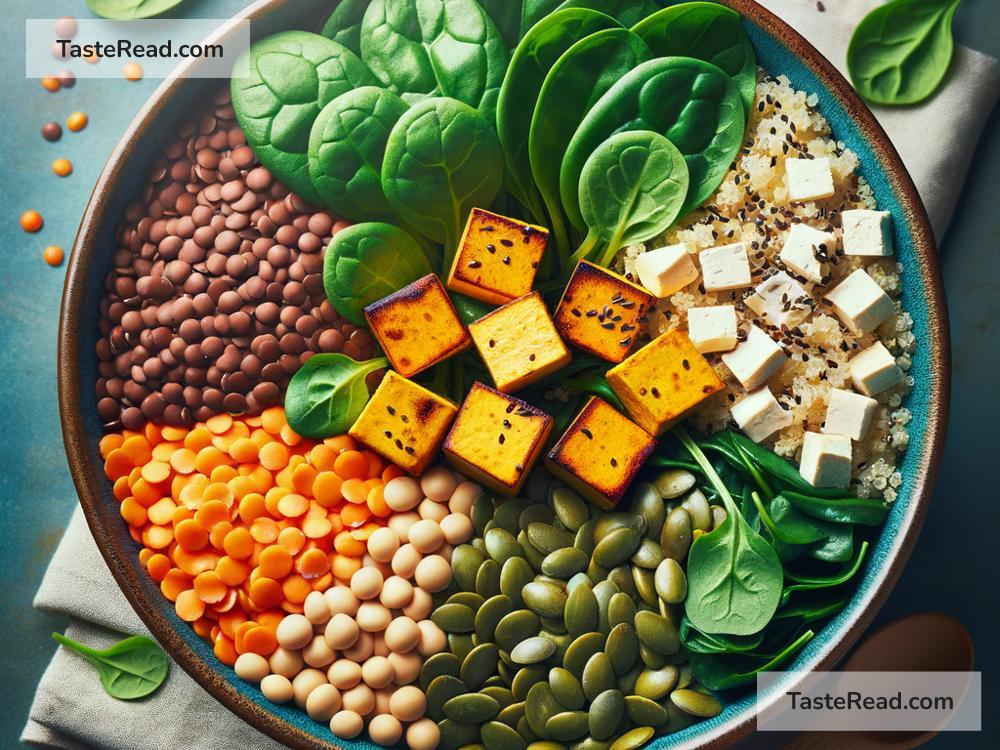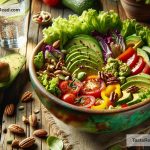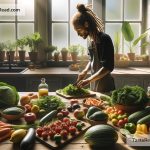Title: The Importance of Iron in a Vegan Diet and How to Secure Enough
Iron is like the unsung hero of our bodies, especially if you’re following a vegan diet. It plays a crucial role in making red blood cells, which shuttle oxygen all over your body, giving you the energy to tackle your day. But when you’re avoiding animal products, finding enough iron can seem a bit challenging. Don’t worry, though; it’s absolutely possible to get all the iron you need on a vegan diet. Let’s delve into how iron functions, why it’s vital, and how you can ensure you’re getting enough through plant-based sources.
Why is Iron So Important?
Iron is essential for maintaining good health and energy levels. It’s a central part of hemoglobin, the substance in red blood cells that carries oxygen from your lungs to the rest of your body. If your iron intake doesn’t meet your body’s needs, you might end up feeling tired, weak, and more susceptible to infections due to a condition known as iron-deficiency anemia.
Iron and the Vegan Diet
On a vegan diet, you’re solely relying on plant-based foods, which means saying goodbye to traditional iron sources like red meat, chicken, and fish. But there’s good news: plenty of plant foods are rich in iron. The key is knowing which ones and how to include them in your diet effectively.
There are two types of iron: heme and non-heme. Heme iron, found in animal products, is more easily absorbed by our bodies. Non-heme iron, found in plants, is a bit harder to absorb. However, with a few smart strategies, you can boost your absorption of plant-based iron, making a vegan diet both healthy and sufficient in iron.
Top Iron-Rich Vegan Foods
- Legumes: Chickpeas, lentils, beans, and peas are not only high in iron but also in protein, making them perfect staples for vegan meals.
- Tofu and Tempeh: These soy-based products pack a double punch of iron and protein.
- Nuts and Seeds: Snack on almonds, cashews, sesame seeds, and pumpkin seeds for a quick iron boost.
- Whole Grains: Foods like quinoa, brown rice, and whole wheat bread are good sources of iron.
- Dark Leafy Greens: Spinach, kale, and Swiss chard can add a nice iron kick to your meals.
- Dried Fruits: Snacking on dried apricots, prunes, and raisins can provide you with a sweet, iron-rich treat.
- Fortified Foods: Some plant milks, cereals, and vegan products are fortified with added iron.
Boosting Iron Absorption
Getting enough iron is one thing, but making sure your body can use it effectively is another. Here are some tips to enhance iron absorption from plant-based foods:
- Vitamin C is Your Friend: Consuming vitamin C-rich foods (like oranges, strawberries, bell peppers, and broccoli) with your meals can significantly boost iron absorption.
- Avoid Certain Combinations: Try to consume coffee, tea, and calcium-rich foods at different times than your iron sources because they can hinder iron absorption.
- Cook in a Cast Iron Skillet: This simple switch can actually leach small amounts of iron into your food, boosting your intake.
- Soak, Sprout, Ferment: These methods can reduce levels of phytates in legumes and grains, substances that interfere with iron absorption.
How Much Iron Do You Need?
Iron needs vary by age, gender, and overall health. Generally, adult men and postmenopausal women need about 8 mg of iron per day, while menstruating women need about 18 mg per day. Pregnant individuals’ needs jump up to 27 mg per day. It’s always a good idea to consult with a healthcare provider to determine your specific needs.
Keeping Track of Your Iron
Paying attention to your body is crucial. Symptoms like fatigue, weakness, pale skin, and shortness of breath can signal an iron deficiency. If you suspect you’re not getting enough iron, a blood test can confirm whether you have anemia.
Wrapping Up
Embracing a vegan lifestyle doesn’t mean skimping on essential nutrients like iron. By diversifying your diet with a variety of plant-based iron sources and employing strategies to boost absorption, you can meet your body’s needs and enjoy the vibrant health and endless energy that comes with it. Remember, balance is key, and with a little planning, your vegan diet can be both delicious and nutritionally complete.


